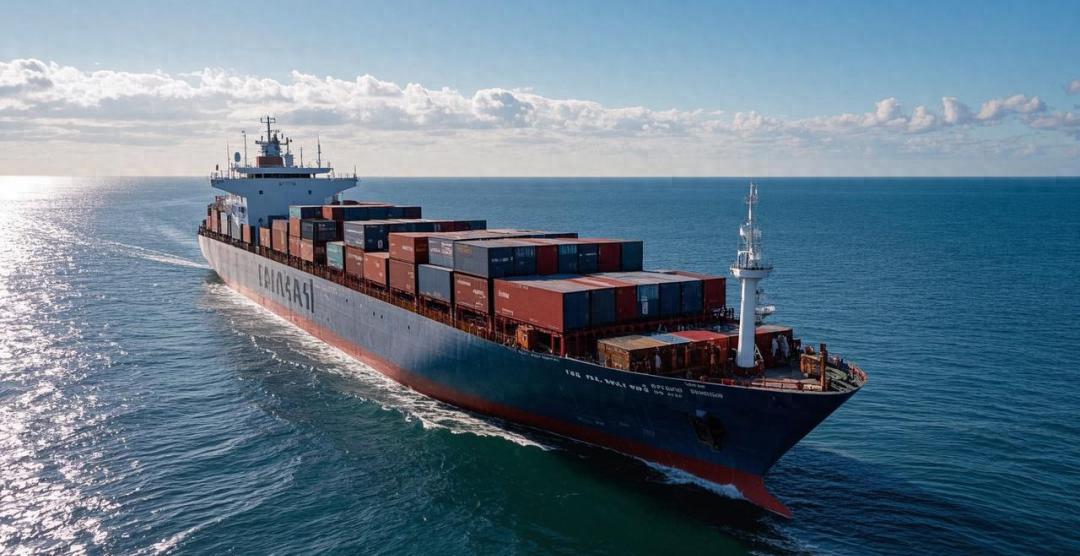The entire process of booking cargo space in Turkey
Release Time:2025-10-25 06:27:20
Whether you are an individual shipping to Turkey or a company engaged in bulk export operations, the efficiency of the booking process directly impacts whether cargo can be shipped on schedule. Particularly given the differences among multiple Turkish ports (such as Istanbul, Mersin, Izmir, etc.) and varying trade terms (FOB/CFR/CIF), clarifying procedures in advance and selecting the right partner can help avoid unnecessary complications. Below is a comprehensive, field-tested guide to booking shipments to Turkey, compiled by Yingzi from Speed汇款 International, to help you efficiently manage your freight booking process:

**I. Pre-Booking: Prepare Documents in 3 Steps to Avoid Post-Booking Amendments**
Rejection or delays in booking are often (80%) due to incomplete preliminary documentation. Confirming the following details in advance can significantly improve efficiency:
1. **Clarify Core Cargo Information**: Provide precise details including the exact description of goods (avoid vague terms such as “daily necessities”—specify “ceramic tableware”), number of packages, gross weight, dimensions (length × width × height, in meters), and packaging type (cartons, pallets, wooden cases). For hazardous materials (e.g., lithium batteries, chemicals), an MSDS report and hazardous class certification must be prepared in advance. Certain Turkish ports impose special requirements for hazardous goods, so confirm these beforehand.
2. **Confirm Key Shipping Elements**: Determine the origin port in China (e.g., Guangzhou, Shanghai, Ningbo), the destination port in Turkey (preferably one close to the consignee to reduce final delivery costs), estimated shipping date (during peak season from September to December, plan 10–15 days ahead), and trade terms (beginners may opt for FOB with freight forwarder support; experienced shippers may choose CFR/CIF for greater control over freight and insurance costs).
3. **Prepare Required Documentation**: For commercial shipments, prepare a commercial invoice (indicating value and trade terms), packing list (matching the goods exactly), and a customs power of attorney. For personal effects, provide a detailed inventory (specifying non-commercial use). Some forwarders assist in standardizing documents to avoid discrepancies that cause post-booking amendments.
**II. During Booking: Secure Space Confidently with 2 Key Strategies**
During peak shipping seasons to Turkey (especially October–December before Christmas and New Year), space is often tight. These strategies can improve booking success:
1. **Choose the Right Partner with Priority Access**: Opt for a team experienced in Turkey-dedicated logistics. Such teams typically maintain long-term partnerships with carriers like Maersk and COSCO, securing stable space and familiarity with Turkish customs clearance rules. Many also offer integrated “booking + customs clearance” packages, reducing intermediary handoffs.
2. **Follow Confirmation Protocols to Avoid Miscommunication**: After submitting a booking request, promptly verify: 1) the freight quote (breakdown of ocean freight, THC, documentation fees, etc.—avoid vague estimates); 2) cut-off dates for documentation and cargo arrival (prevent missing the vessel departure); and 3) the Shipping Order (SO)—check key details like vessel name, voyage number, and bill of lading number, correcting any errors immediately.
**III. Post-Booking: Coordinate Loading and Customs with Focus on 2 Critical Stages**
Booking is not the final step; seamless follow-up is equally important:
1. **Container Loading Phase**: Schedule loading according to the SO’s time window. Options include “door-to-door container pickup” (forwarder arranges trucking to your facility) or “CFS loading” (you deliver goods to the forwarder’s warehouse). Document the process with photos (cargo placement, seal number) to prevent disputes over damage.
2. **Customs Declaration and Tracking**: Entrust the forwarder or a customs broker to handle export declarations, ensuring consistency with booking details (e.g., value, product description). After customs release, use the tracking link provided by the forwarder to monitor real-time status (e.g., loaded on vessel, ETA). Note that some Turkish ports require customs clearance within 45 days of arrival—confirm documentation requirements in advance.
If navigating these steps seems time-consuming, or if you need to secure space quickly during peak season, feel free to contact Yingzi from Speed汇款 International (Turkey Specialist). She offers document review, priority booking, and integrated destination customs support to ensure a smooth end-to-end shipping process.

